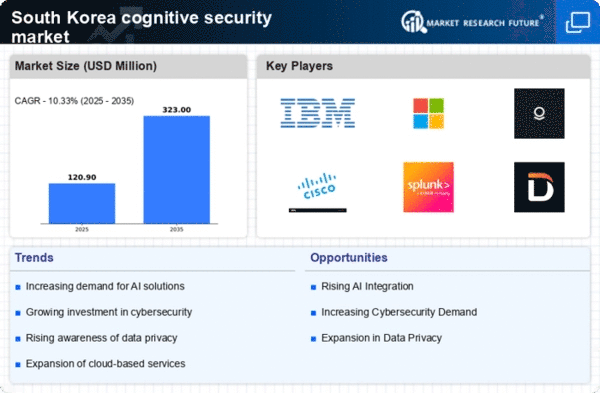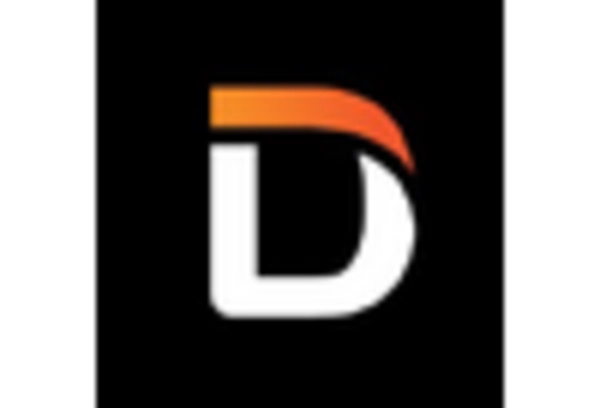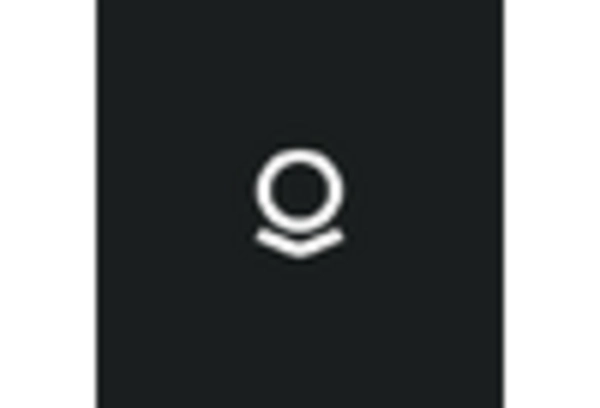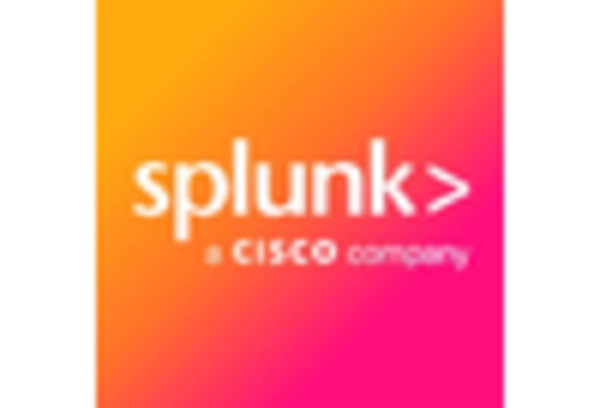Increasing Cyber Threats
The cognitive security market in South Korea is experiencing growth due to the rising frequency and sophistication of cyber threats. As organizations face an increasing number of cyberattacks, the demand for advanced security solutions that leverage cognitive technologies is becoming more pronounced. In 2025, it is estimated that cybercrime could cost the global economy over $10 trillion annually, prompting South Korean businesses to invest heavily in cognitive security measures. This trend indicates a shift towards proactive security strategies that utilize artificial intelligence and machine learning to predict and mitigate potential threats. Consequently, The cognitive security market is likely to expand as companies enhance their defenses against evolving cyber risks.
Integration of IoT Devices
The proliferation of Internet of Things (IoT) devices in South Korea is creating new challenges for cybersecurity, thereby driving the cognitive security market. As more devices become interconnected, the potential attack surface for cyber threats expands, necessitating advanced security solutions. Cognitive security technologies are increasingly being integrated into IoT ecosystems to provide enhanced protection against vulnerabilities. This integration is expected to grow as organizations recognize the need for comprehensive security strategies that encompass both traditional IT and IoT environments. The cognitive security market is likely to see significant growth as businesses seek to secure their IoT deployments.
Technological Advancements in AI
The rapid advancements in artificial intelligence (AI) are significantly influencing the cognitive security market in South Korea. Innovations in machine learning, natural language processing, and data analytics are enabling the development of more sophisticated security solutions. These technologies allow for real-time threat detection and response, which is crucial in an era where cyber threats are becoming increasingly complex. The cognitive security market is expected to benefit from these technological advancements, as organizations seek to leverage AI capabilities to enhance their security posture. This trend indicates a growing reliance on cognitive technologies to address security challenges effectively.
Growing Awareness of Data Privacy
As data privacy concerns continue to rise among consumers and businesses in South Korea, the cognitive security market is poised for growth. Organizations are becoming more aware of the importance of protecting personal and sensitive information, leading to increased investments in cognitive security solutions. This heightened awareness is driven by public demand for transparency and accountability in data handling practices. Consequently, businesses are adopting cognitive security measures to not only protect their data but also to build trust with their customers. This trend suggests that the cognitive security market will expand as organizations prioritize data privacy in their security strategies.
Regulatory Compliance Requirements
In South Korea, stringent regulatory frameworks are driving the cognitive security market. Organizations are required to comply with various data protection laws, such as the Personal Information Protection Act (PIPA), which mandates robust security measures to safeguard sensitive information. As compliance becomes increasingly complex, businesses are turning to cognitive security solutions to ensure adherence to these regulations. The market is projected to grow as companies invest in technologies that not only protect data but also facilitate compliance reporting and audits. This regulatory landscape suggests that the cognitive security market will continue to thrive as organizations prioritize compliance alongside security.
















